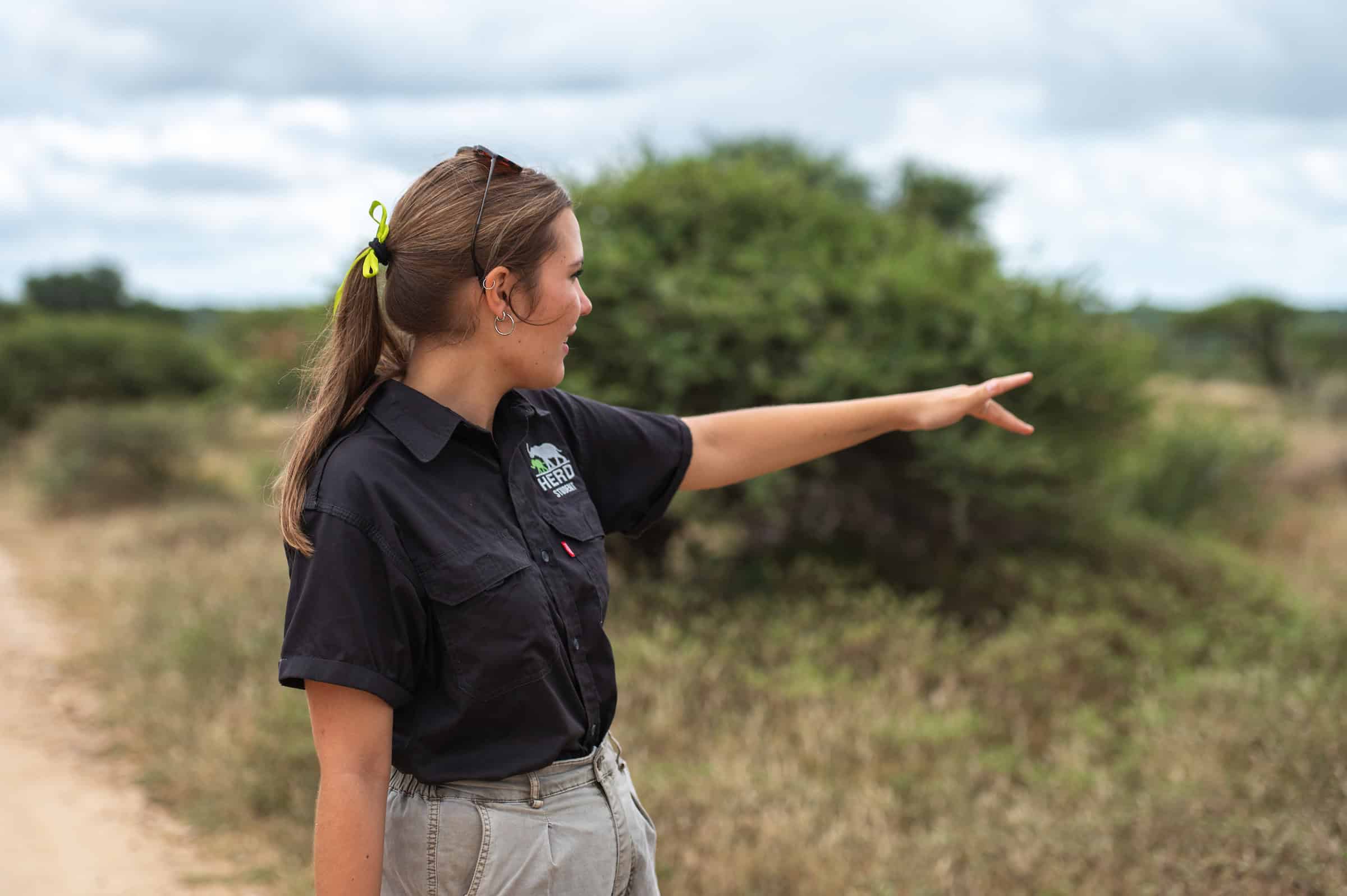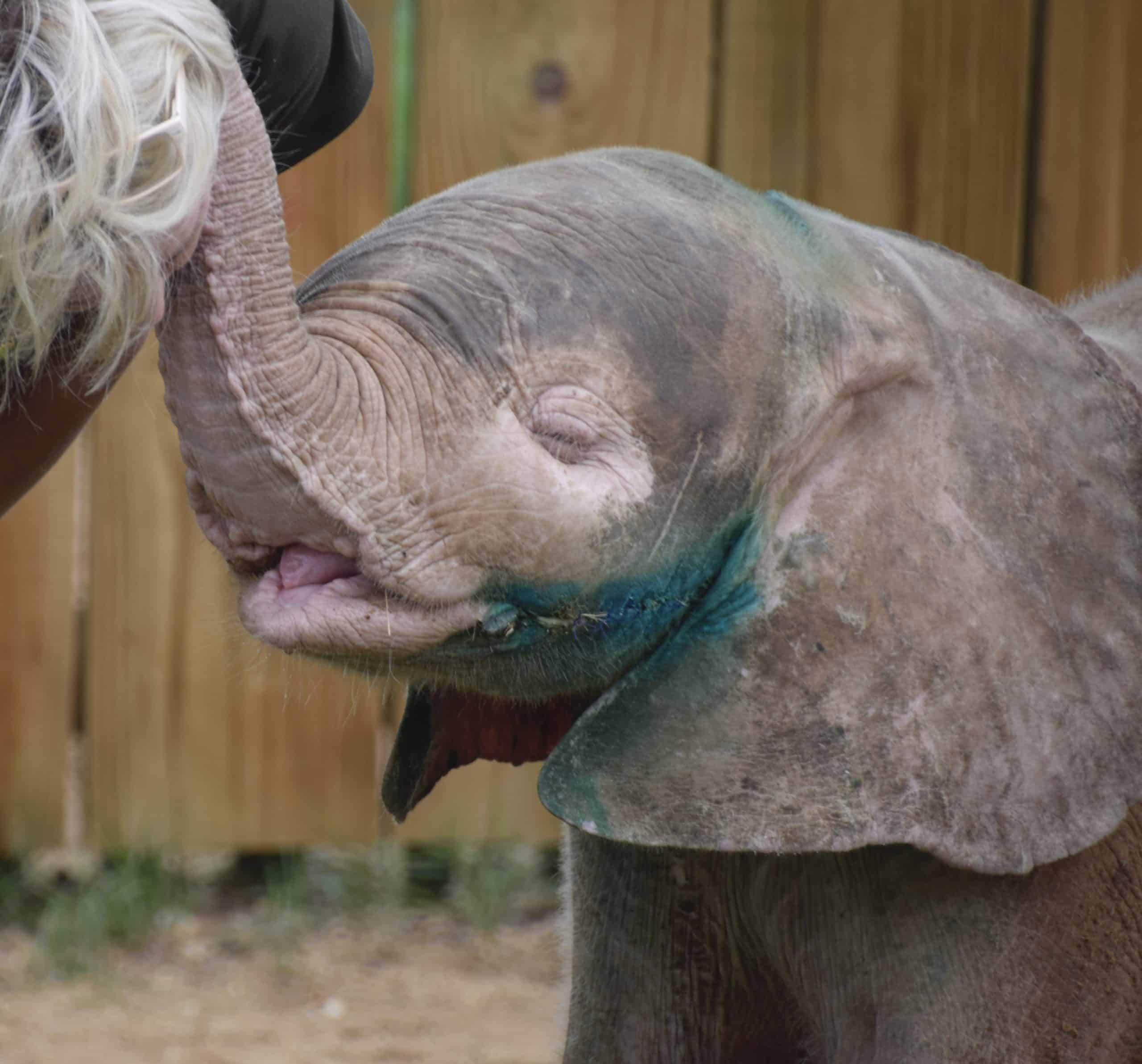What it Takes to Care for Baby Elephants: #1 Stimulation
stimulation
noun: encouragement of something to make it develop or become more active; the action of arousing interest, enthusiasm, or excitement; the raising of levels of physiological or nervous activity in the body or any biological system.
Both man and elephant need stimulation to grow and to thrive, as much as we need rest and security, and little Khanyisa as a growing calf, certainly needs it in trunk-loads, like all youngsters.
Naturally, had she had a different start to life, Khanyisa would be with her original herd, receiving constant education and experience and excitement through her days and nights by their side. Throughout her rehabilitation with us, and now with her gradual integration into the Jabulani herd, the calf has had all manner of objects and activities to keep that busy mind and body active and happy.
Nature will always be the best and most enriching place for this, a place where little elephants can learn to feed, learn the knack to sand-dusting and learn how to be an elephant. Before her walks with the Jabulani herd began, Khanyisa spent her time in her nursery and private garden, with her dedicated carer always close-by for safety, but also for company, for stimulation.
Our carers (and Lammie) are the friends or family these orphans need, as social animals, to ensure that they don’t feel lonely, to ensure that they feel loved, accepted, embraced.
Our carers spend day times in the nursery garden keeping Khanyisa entertained, the calf very much leading the way, from hill to ditch to a grass patch. Tyres, balls, bags stuffed with grass and sewed up, rakes, hose pipes, Lammie’s tail… these things all give her the stimulation she needs, along with her trough, where she loses herself in delicious splashes and drinks. The dips in the terrain help her practice climbing and descending, as she learns to use her growing legs and feet in new ways. Then there are the runs around the nursery, with her human family, another way to ensure she gets the necessary exercise that she would were she permanently in the wild.
Now, spending more and more time with the Jabulani herd in nature, foraging, walking, bonding and eating together, her brain is constantly kept active through the smells and sights and sounds of her future herd and the wild things of her surroundings. She is learning daily from these interactions, which we can pick up sometimes, when she mimics the older elephants in certain behaviours, from lifting her leg to digging for roots.
While this activity is vital to caring for a baby elephant, it’s just as important to ensure that we go at the calf’s pace, to not push her, to protect her and monitor her stress, weight, dung, sleep patterns and other behaviours as she continues to immerse more and more into the wild world.
Neither understimulation nor overstimulation is good, but rather a balance that is just right, and is tweaked as the elephant changes. Little by little, Khanyisa is truly growing up into a stronger, larger and more and more courageous and curious pink elephant.
You can foster Khanyisa here, and help HERD to care for her and other elephant orphans that have been abandoned or displaced.





Lesley Hook
As I learn more about HERD, I find I too am being ‘stimulated’ by all that I am learning, not only about about the elephants, but also about the human dynamic, from yourself, Adine, to the carers. The unseen emotions and feelings you, as the foster parents of the babies, have to go through, are just incredible! Your highs, your lows, your challenges, your triumphs, are all met with your steadfast dedication to the absolute survival of the elephants. My heart bursts with admiration for you all! Thank you, thank you, thank you ?
John Tobin
Yhanks!